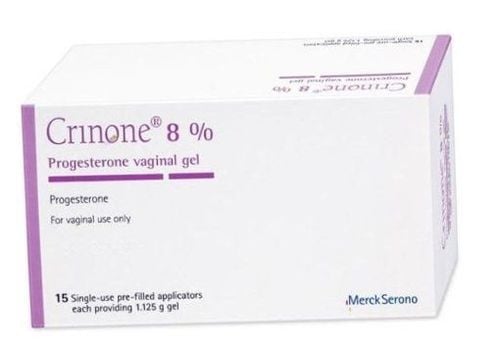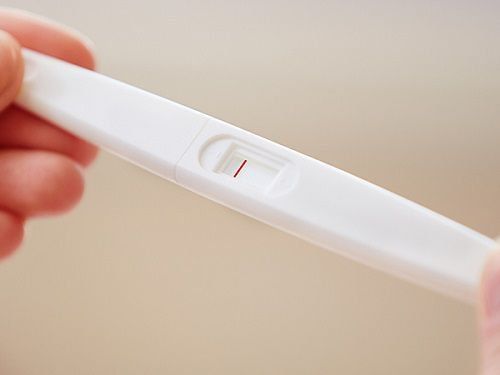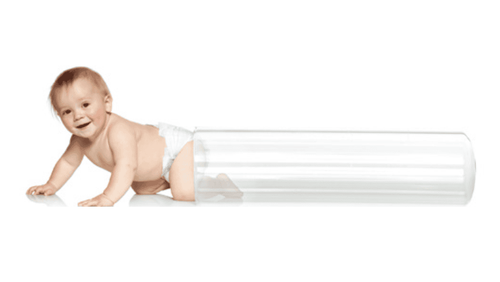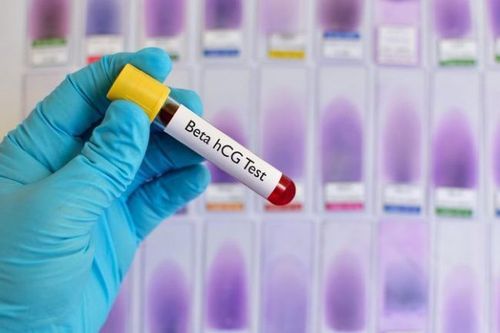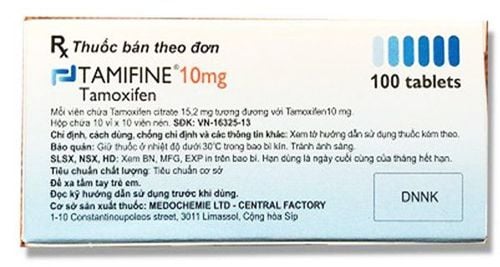This is an automatically translated article.
Infertility is a serious problem for many couples, dramatically altering the lives of the entire family. In fact, not every couple is slow to have children because of infertility. If you've been trying for a while with no success, you may want to consider seeing a fertility doctor.1. When is it called infertile?
Infertility is when a couple is unable to get pregnant despite having regular sex and not using any birth control for a year. On average, about one in seven couples may have difficulty conceiving. About 84% of couples will conceive naturally within a year if they have sex regularly (every 2 or 3 days) and don't use any contraception. For couples who have been trying to conceive for more than 3 years without success, their chance of getting pregnant naturally within the next 1 year is one in four or less.Although a person can be considered infertile after a year of trying to conceive but failing. But 12 months might not mean much. Because some recent studies show that the majority of women up to the age of 39 who did not get pregnant in the first year were pregnant by the 2nd year without any medical assistance.
For women aged 27 - 34 years, only 6% are unable to conceive in the second year. For women aged 35 to 39, only 9% were unable to conceive in the second year, provided their partner was under 40.
Therefore, even if you have been trying to get pregnant for a year without success, this does not mean that you are infertile. You need to find out the reason why you are not pregnant, before you decide to use infertility treatments.

Vô sinh là khi một cặp vợ chồng không thể có thai mặc dù có quan hệ tình dục thường xuyên và không sử dụng bất kỳ biện pháp tránh thai nào trong vòng một năm
2. When to see a fertility doctor?
You should see a fertility clinic when:If you are under 35 years old and still haven't gotten pregnant after a year of regular sex and not using any birth control. If you are 35 or older, you should see a fertility doctor after about six months of unsuccessful attempts to conceive. When you are concerned about infertility, it is best to see a fertility doctor for specific advice. Certain conditions can also affect your fertility. That's why you should treat these conditions before spending a full 6 months or a year trying to get pregnant naturally. You should talk to your doctor if you have a history of any of the following:
Pelvic inflammatory disease Fibroids Endometriosis Polycystic ovary syndrome Sexually transmitted infections such as chlamydia or gonorrhea. The fallopian tubes are blocked due to infection, ectopic pregnancy, or previous surgery. Previous pelvic or abdominal surgery. Have a chronic illness such as diabetes, cancer, or thyroid disease. Even if you have never been diagnosed with a specific medical condition, certain symptoms or physical characteristics may indicate a problem that could affect your fertility. Talk to your fertility doctor if you are having trouble getting pregnant with any of the following signs:
Irregular menstrual cycles, menstrual cramps, prolonged periods. Daily pelvic pain Hair loss Severe acne Lots of hair on face and body. It's also important to remember that smoking, drinking alcohol, drinking more than 300mg of caffeine per day, or being significantly overweight or underweight can also negatively impact fertility and pregnancy.

Sử dụng rượu và thuốc lá có thể làm ảnh hưởng đến khả năng sinh sản và mang thai
3. What can a fertility doctor ask?
During your first appointment, your fertility doctor will start by talking with you and your spouse about your health and medical problems. While there can be some awkward or embarrassing questions, it's the best way to assess what might be keeping you from getting pregnant.In many cases infertility is the result of a combination of factors, so a thorough examination is extremely important.
Your fertility doctor may ask you about:
Your medical history, including any chronic illnesses or surgeries you've had. Your drug use. Your use of caffeine, alcohol, tobacco, drugs or other stimulants. Are you exposed to chemicals, toxins, or radiation in your home or at work? Your sexual habits, including: how often you have sex, any history of sexual problems or sexually transmitted diseases. Choose your underwear (if you're a man): wearing tight shorts can keep the scrotum too warm, making sperm production problematic. The fertility doctor will also want to ask about a woman's gynecological history:
Have you ever been pregnant and the outcome of those pregnancies (miscarriage, stillbirth, preterm birth, vaginal delivery, or delivery? surgery). The frequency of your periods in the past year. Are your periods regular or not, have you missed your period or bleed between periods? Changes in blood volume or the appearance of large blood clots in menstrual blood. The birth control methods you used. Have you ever been to a fertility clinic, if so, how was it treated and what were the results? If you have seen your doctor about fertility problems before, make sure you bring all of your previous fertility-related medical records with you.

Bác sĩ hiếm muộn cũng sẽ muốn hỏi về tiền sử phụ khoa của một người phụ nữ
4. What tests can a fertility doctor order?
4.1. Blood tests and semen analysis After the conversation is over, the doctor may conduct a physical exam, blood tests to check levels of female hormones, thyroid hormones, prolactin and male hormones, as well as HIV status. and hepatitis.A physical exam may include a pelvic exam to look for chlamydia, gonorrhea, or other genital infections that may be contributing to fertility problems.
Men may also need to be evaluated for genital infections. Your fertility doctor will also recommend a semen analysis test to check the number, shape, and motility of sperm.
Your doctor may also schedule other blood tests according to a woman's menstrual cycle, such as:
Follicle-stimulating hormone (FSH) and luteinizing hormone (LH) tests must be done on the second day. or the third of the menstrual cycle. Lutein-producing hormone increases in the middle of your menstrual cycle, so you may need to come in for more tests later, and again about seven days after you start ovulating. After you ovulate, your doctor will check your estradiol and progesterone levels and compare them to the levels achieved during the second or third day of your cycle. 4.2. Other tests and procedures A number of other tests and procedures may be done during your fertility screening, including:
BBT charting: If you haven't already, your doctor may recommend starting a schedule. basal body temperature chart as a way to check for ovulation. However, while BBT charting is a technique used for many years, experts do not believe it is as accurate as other ovulation tests. Postpartum exam: This test requires you to have intercourse a few hours in advance and then visit your doctor to get a sample of cervical mucus for microscopic examination. This is one way to test the viability of sperm and their interaction with cervical mucus. Transvaginal ultrasound: Your doctor may recommend an ultrasound to check the condition of your uterus and ovaries. Often a doctor can determine if the follicles in the ovaries are functioning properly. An ultrasound is usually done 15 days before a woman's expected period.
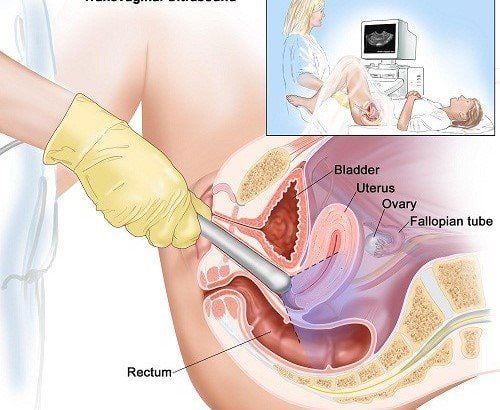
Bác sĩ có thể đề nghị siêu âm để kiểm tra tình trạng của tử cung và buồng trứng
When you and your husband have been trying for a long time but still do not get pregnant, you are worried about your fertility, you should go to a fertility doctor to be examined, checked, to find out the cause. and the most appropriate treatment method.
To prepare for a healthy pregnancy, both husband and wife should check their reproductive health 3-5 months before becoming pregnant.

Để chuẩn bị một thai kỳ khỏe mạnh, cả vợ và chồng nên kiểm tra sức khỏe sinh sản từ 3-5 tháng trước khi mang thai
Get vaccinated before pregnancy (especially against rubella because rubella in pregnancy is extremely dangerous ) Genetic testing to screen for genetic diseases before pregnancy Check for gynecological infections Avoid affecting the health of the mother and the fetus Especially women over 35 years old who want to get pregnant (especially if they have never been pregnant) will have to have a very detailed health check because pregnancy at this age is common. problems: Ovarian failure, premature birth, higher risk of birth defects, placenta previa, preeclampsia. The husband should:
Check reproductive health, detect diseases of testicular atrophy, physiological weakness, weak sperm... Sexually transmitted diseases, especially those that cannot be cured, are extremely dangerous. Vinmec currently has many comprehensive health care programs for couples, pregnant mothers and their unborn babies, including basic pre-marital examination packages, advanced pre-marital examination packages, and maternity packages. . Vinmec has a team of experienced doctors in the fields of obstetrics and gynecology, IVF, stem cells, gene technology, capable of synchronously and comprehensively deploying the most advanced assisted reproductive techniques today.
For specific information about fertility and maternity packages at Vinmec, please contact the hospitals and clinics of Vinmec health system nationwide.
Please dial HOTLINE for more information or register for an appointment HERE. Download MyVinmec app to make appointments faster and to manage your bookings easily.
Reference sources: babycenter.com, .webmd.com, verywellfamily.com, nhs.ukMORE
What is considered infertility? Infertility due to not ovulating: Why? Going to IVF Vinmec - A short way for families who want to cure infertility and infertility




